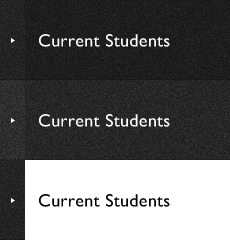What You Should Do When You Suspect That You Might Have Been Infected with the Novel Coronavirus, or When You Are Not Sure about Your Symptoms
Published: April 16, 2020
The content below is updated.
Please see the following page for new information.
/english/enrolled/news/2020/046816.html
From:
Tetsuya Mizumoto, Executive Vice President for Education, Tokyo Institute of Technology
Mitsuji Sanpei, Director, Health Support Center
Toshihiko Fukuoka, Industrial Physician and School Doctor, Health Support Center
If you develop cold-like symptoms including fever, cough, and sore throat and suspect that you might have been infected with the virus, or when you are not sure if your conditions could possibly apply to the symptoms explained in the website of the Ministry of Health, Labor, and Welfare
(https://www.mhlw.go.jp/stf/seisakunitsuite/bunya/kenkou_iryou/dengue_fever_qa_00014.html),
please follow the procedures below:
(1) Do not come to the Institute. Following the government’s April 7 declaration of a state of emergency, Tokyo Tech is requesting that all students avoid coming to the Institute’s campuses at least until May 8.
(2) Stay at home and do not go out.
(3) Promptly consult a “Consultation Center for People with Potential Exposure to COVID-19,” set up at your nearest public health center.
(4) When the consultation center determines that you should proceed to the testing, please follow the center’s instructions.
(5) If you test positive for COVID-19, please report it to the following Tokyo Tech contacts via email, stating your name, student ID number, and the diagnosis.
a) Student Division at: kyo.mado@jim.titech.ac.jp
b) Health Support Center at:
c) If you are affiliated with a laboratory, report the info to your academic supervisor as well.
(6) If the consultation center does not ask you to proceed to the testing, please consider seeing a doctor. Please make sure to inform the clinic/medical institution before physically visiting the location that you have consulted the consultation center. If you visit a doctor, please follow the doctor’s instructions.
<Useful links provided in English>
For related information in English provided by responsible authorities, etc., please visit the links listed below:
Q & A on Coronavirus Disease 2019 (COVID-19), by the Ministry of Health, Labor, and Welfare:
Q8: If it is suspected that I might have been infected with the virus, which medical institution should I consult with to receive testing and treatment?
https://www.mhlw.go.jp/stf/seisakunitsuite/bunya/kenkou_iryou/dengue_fever_qa_00014.html
Multilingual coronavirus hotlines in Japan, by NHK WORLD-JAPAN:
https://www3.nhk.or.jp/nhkworld/en/news/backstories/1019/
Bureau of Social Welfare and Public Health, Tokyo Metropolitan Government
https://www.fukushihoken.metro.tokyo.lg.jp/english/index.html
You can find general information, FAQs, and updates from the Tokyo government about COVID-19.
A list of medical clinics located near Tokyo Tech campuses is available from the Tokyo Tech website:
For the Ookayama area, please visit:
/english/enrolled/health/pdf/clinic_Ookayama_english.pdf
For the Suzukakedai area, please visit:
/english/enrolled/pdf/clinic_suzukakedai_english.pdf
<Everyday preventive action>
・Wash your hands (the most important step)*
・Wear a facemask (coughing etiquette)**
・Avoid crowded places, especially the following “Three C” situations:
1. Confined spaces with poor ventilation
2. Crowded places (with many people)
3. Close-contact settings and interactions
E.g., parties, large gatherings, karaoke
・Eat healthily, get plenty of rest, and avoid becoming overworked
*For more information on handwashing and the use of masks, please refer to the links listed below.
**Facemasks are effective in protecting people from droplets or splashes of infected fluids from coughs and sneezes, and in preventing the spread of infection by wearers.
・Precautions
Those with underlying diseases and smokers may need to take extra precautions as many of the severe or fatal cases caused by the coronavirus have involved such individuals according to recent reports. Additionally, people with underlying diseases may be recommended to seek medical advice from their family doctor in advance. Smokers are also encouraged to stop smoking.
Underlying diseases are health problems that require treatment or regular follow-up visits.
Conditions include diabetes, lung disease, heart disease, brain disease, kidney disease, malignant diseases such as cancer, immune disorders such as connective tissue disease, etc. People taking immunosuppressive medications are also included.
<Tips for proper handwashing - refer to the following video links>
USCDC: Clean Hands Help Prevent the Flu
https://www.youtube.com/watch?v=XHISh559oho
USCDC: What You Need to Know about Handwashing
https://www.youtube.com/watch?v=d914EnpU4Fo&feature=youtu.be
<What you can do to prevent infection>
(Information provided by the Ministry of Health, Labor, and Welfare)
Prevention Measures against Coronavirus Disease 2019 (COVID-19) (in English)
https://www.mhlw.go.jp/content/10900000/000597148.pdf
“Avoid the ‘Three Cs’!” leaflet (in English):
https://www.mhlw.go.jp/content/10900000/000619576.pdf
* Health Support Center email address has changed (4.21)
Update : April 24, 2020


